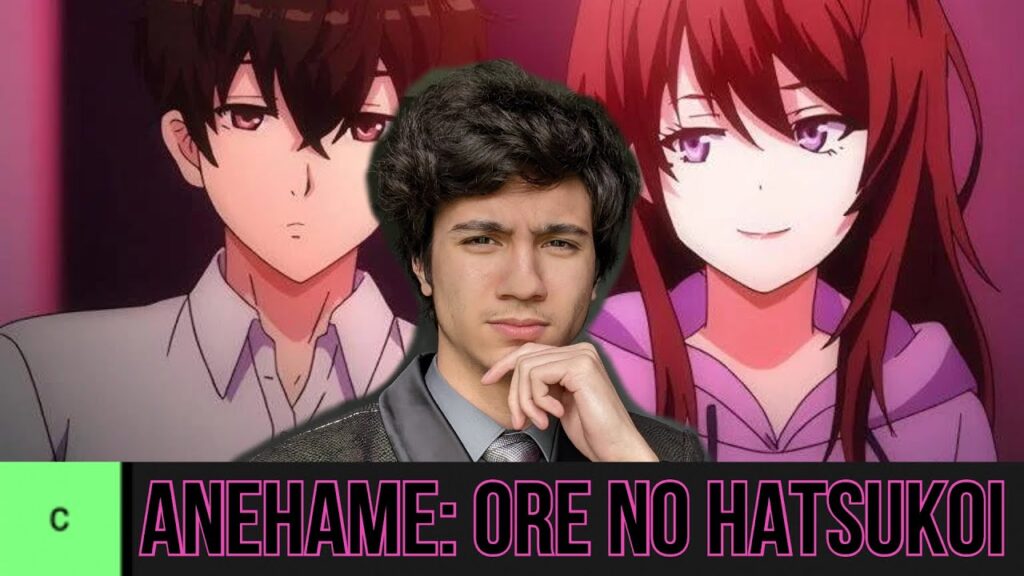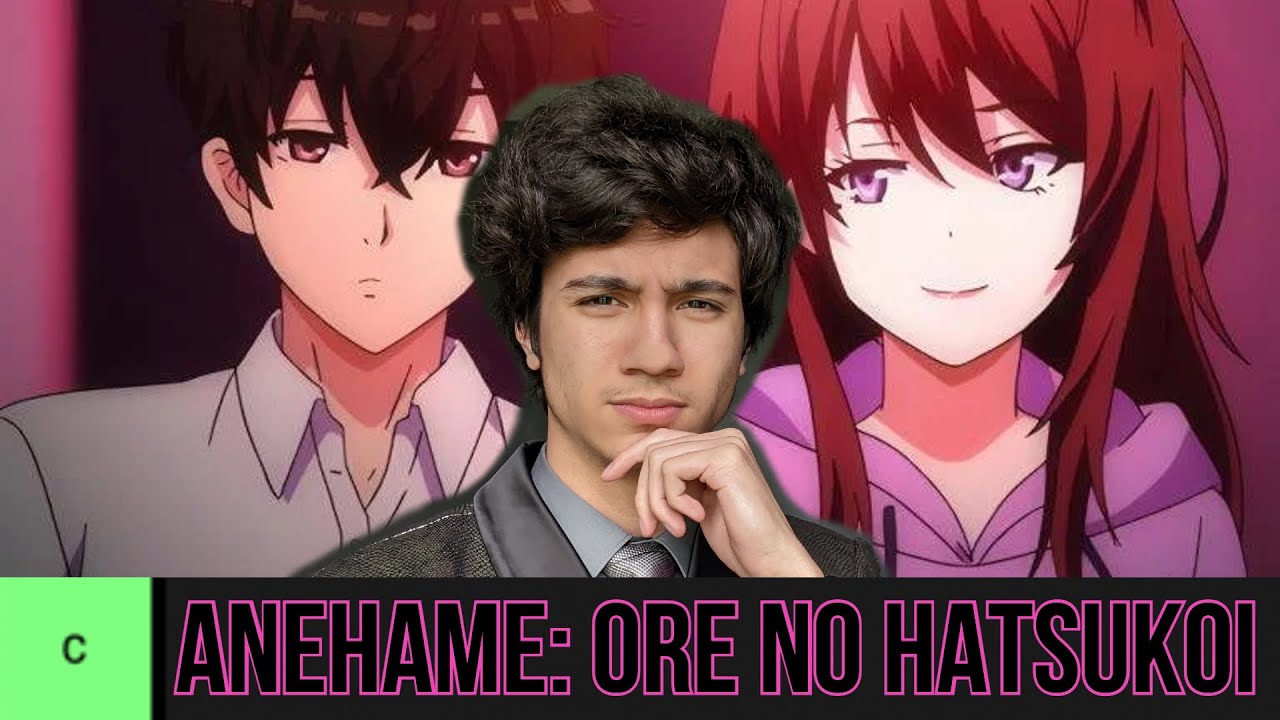
Unraveling the Enigma: Why ‘Ore no Hatsukoi ga Jisshi na Wake ga Nai’ Captivates Audiences
The phrase ‘Ore no Hatsukoi ga Jisshi na Wake ga Nai‘ might sound like a cryptic code to those unfamiliar with Japanese light novels and anime. However, within the community, it represents a fascinating and increasingly popular narrative trope. Directly translated, it means ‘There’s No Way My First Love is Real.’ This concept, laden with irony and self-deprecation, is rapidly gaining traction, and this article aims to dissect the reasons behind its appeal.
At its core, ‘Ore no Hatsukoi ga Jisshi na Wake ga Nai‘ explores the themes of unrequited love, self-doubt, and the often-exaggerated realities of romanticized fiction. It typically involves a protagonist who is convinced that their idealized first love is somehow unattainable or inherently flawed. This conviction often stems from a deep-seated insecurity or a distorted perception of reality, leading to humorous and often poignant situations.
The Allure of Relatability: Why We Connect with ‘Ore no Hatsukoi ga Jisshi na Wake ga Nai’
One of the primary reasons for the popularity of ‘Ore no Hatsukoi ga Jisshi na Wake ga Nai‘ lies in its relatability. Many people, especially during their formative years, experience the pangs of first love coupled with crippling self-doubt. The fear of rejection, the anxiety of not being ‘good enough,’ and the tendency to romanticize the object of affection are universal experiences. This narrative trope taps into these feelings, offering a comedic and often cathartic outlet for viewers and readers.
Furthermore, the inherent irony in ‘Ore no Hatsukoi ga Jisshi na Wake ga Nai‘ appeals to a sense of self-awareness. The protagonist’s exaggerated perception of their situation often serves as a mirror, reflecting the audience’s own past insecurities and tendencies to overthink romantic scenarios. This self-deprecating humor creates a bond between the audience and the character, making the story more engaging and memorable.
Deconstructing the Trope: Elements of ‘Ore no Hatsukoi ga Jisshi na Wake ga Nai’
To fully understand the appeal of ‘Ore no Hatsukoi ga Jisshi na Wake ga Nai,’ it’s crucial to examine the common elements that define this narrative trope:
- The Idealized First Love: The object of affection is often portrayed as perfect or near-perfect, possessing qualities that the protagonist admires and desires. This idealization sets the stage for the protagonist’s self-doubt and the belief that they are unworthy.
- The Insecure Protagonist: The protagonist typically suffers from low self-esteem, social anxiety, or a distorted perception of reality. These insecurities fuel their conviction that their first love is unattainable.
- The Misunderstanding or Misinterpretation: The plot often revolves around misunderstandings or misinterpretations of social cues, leading the protagonist to believe that their feelings are unrequited or that their first love is not genuine.
- The Comic Relief: Humor plays a significant role in ‘Ore no Hatsukoi ga Jisshi na Wake ga Nai.’ The protagonist’s exaggerated reactions and internal monologues often provide comedic relief, making the story more lighthearted and entertaining.
- The Underlying Truth: Despite the protagonist’s initial conviction, the story often reveals that their first love is, in fact, genuine. This revelation leads to a heartwarming and satisfying conclusion.
Examples in Media: Where to Find ‘Ore no Hatsukoi ga Jisshi na Wake ga Nai’
While the specific phrase ‘Ore no Hatsukoi ga Jisshi na Wake ga Nai‘ might not be explicitly used as a title, the underlying concept is prevalent in various anime, manga, and light novels. These works often explore the themes of unrequited love and self-doubt with a comedic twist.
Here are a few examples that embody the spirit of ‘Ore no Hatsukoi ga Jisshi na Wake ga Nai‘:
- My Teen Romantic Comedy SNAFU (Oregairu): This series features a cynical protagonist who believes that genuine relationships are impossible. His interactions with the female leads often involve misunderstandings and self-deprecating humor.
- Wotakoi: Love is Hard for Otaku: This romantic comedy explores the challenges of dating as an otaku, with characters often doubting their ability to find love due to their niche interests.
- Kaguya-sama: Love Is War: This series features two brilliant students who are both in love with each other but refuse to confess, believing that whoever confesses first loses. The resulting mind games and strategic maneuvers are both hilarious and insightful.
The Future of the Trope: Evolution and Innovation in ‘Ore no Hatsukoi ga Jisshi na Wake ga Nai’
As the ‘Ore no Hatsukoi ga Jisshi na Wake ga Nai‘ trope continues to gain popularity, it’s likely to evolve and innovate in new and exciting ways. We may see more nuanced explorations of the underlying themes of self-doubt and unrequited love, as well as more diverse representations of characters and relationships.
One potential direction for the trope is to delve deeper into the psychological factors that contribute to the protagonist’s insecurities. This could involve exploring their past experiences, their relationships with their families and friends, and their overall mental health. By providing a more comprehensive understanding of the protagonist’s motivations, the story can become more emotionally resonant and relatable.
Another potential direction is to subvert the traditional tropes of the genre. This could involve creating a protagonist who is aware of their own insecurities and actively works to overcome them, or a story where the first love is not as perfect as it seems. By challenging the audience’s expectations, the story can become more unpredictable and engaging.
The Enduring Appeal: Why ‘Ore no Hatsukoi ga Jisshi na Wake ga Nai’ Will Continue to Resonate
Despite its seemingly niche appeal, ‘Ore no Hatsukoi ga Jisshi na Wake ga Nai‘ resonates with a broad audience due to its exploration of universal themes and its use of humor and irony. The relatability of the protagonist’s insecurities, the comedic relief provided by their exaggerated reactions, and the underlying message of hope and self-acceptance all contribute to the enduring appeal of this narrative trope.
The ability to laugh at oneself and to find humor in the face of adversity is a valuable skill, and ‘Ore no Hatsukoi ga Jisshi na Wake ga Nai‘ provides a safe and entertaining space to explore these themes. As long as people continue to experience the pangs of first love and the anxieties of self-doubt, this trope will continue to resonate with audiences for years to come. The core concept of ‘Ore no Hatsukoi ga Jisshi na Wake ga Nai‘ is here to stay, evolving and adapting to new audiences and storytelling techniques.
Ultimately, the charm of ‘Ore no Hatsukoi ga Jisshi na Wake ga Nai‘ lies in its ability to remind us that we are not alone in our insecurities and that even the most idealized first love can be within reach. It’s a narrative that celebrates the awkwardness and uncertainty of youth while offering a hopeful message about the power of self-acceptance and genuine connection. This makes ‘Ore no Hatsukoi ga Jisshi na Wake ga Nai‘ a compelling and enduring trope in the world of anime and light novels.
[See also: Popular Anime Tropes Explained]
[See also: The Psychology of First Love in Anime]
